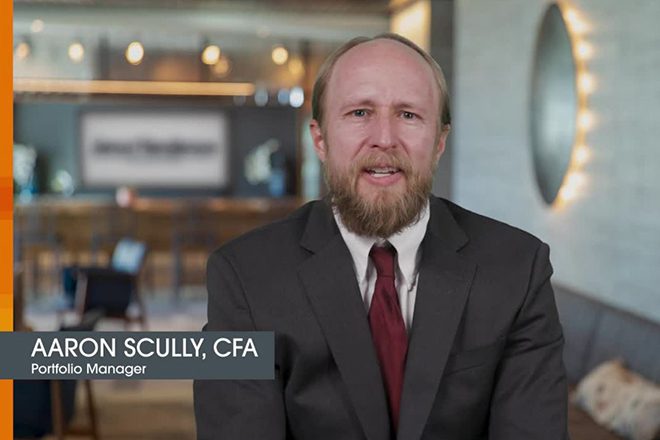Progressing toward a sustainable global economy

The world is facing critical sustainability and social challenges that will require drastic change to overcome. Head of Global Sustainable Equities Hamish Chamberlayne joins Sustainability Analyst Amarachi Seery and Portfolio Manager Aaron Scully in a discussion on how companies are working to address these issues and why we believe active engagement is key to gauging their long-term progress.
Key Takeaways
- While drastic change will be needed to address the environmental, social and governance issues the world is currently facing, we are seeing many companies rise to the challenge.
- The pandemic has underscored the importance of engaging with companies on topics related to race, gender and climate change, and we have seen improvements in reporting on these factors.
- We believe that companies that are aligned with the development of a sustainable global economy will be far more likely to see growth and demand for their goods and services and will therefore be more likely to achieve steady compound growth over the long term.
Hamish Chamberlayne: We believe that the DED nexus, this is something that we have come up with, ultimately the DED nexus, D-E-D nexus, it stands for digitalization, electrification, and decarbonization, we see this as an incredibly powerful cross-sector and cross-industry trend that is really going to define investment opportunity and also investment risk over the coming decade. And obviously at the heart of it is decarbonization.
One of the things that is really important to note about decarbonization or the transition to a low-carbon economy and investing in this trend is that it is much more complex than just removing fossil fuels from your portfolio and investing in renewable energy. Ultimately, after a couple of hundred years of fossil fuel-driven economic development, fossil fuels are really integrated into the global economy. And this decarbonization theme, we believe, is going to be really enabled by two very powerful trends that we see happening to companies, and that’s electrification and digitalization. And it’s really important to note that the technology sector is going to be a huge driver of this, of the innovation that is required to enable the electrification and digitalization.
Aaron Scully: If we could boil down what we’re seeing in society and technology to just one sentence, we’re in this age of exponential growth and exponential change. And there’s a number of drivers behind this. There’s a number of technologies. So, you can point to AI, blockchain, 5G, battery storage, electric vehicles. You know, all of these are driving change.
Amarachi Seery: The reality is that the scientists are telling us that there are no more small steps to be made. When the IPCC [Intergovernmental Panel on Climate Change] released their sixth report on this, they said drastic changes needed, not small steps. So what we’ve been doing for the last couple of years is to ask companies about their net zero carbon journey and we’re just going to continue asking that because it is vitally important. But also, we’re seeing that a lot of companies are rising to that challenge and they’re putting in science-based targets, but they’re also putting in net zero carbon commitments.
Scully: Active managers can engage with company management to really understand if they truly care about the long term, if they really have a culture of reinvesting in their business models, if they have a culture that really focuses on all their constituents, not just the shareholders but employees, suppliers, and the environment. Just as important, active managers are able to better understand the business models that are more likely to last over the long-term versus those that will go away. We are in, again, an age of exponential change and growth, and there are a number of emerging business models and companies out there.
Seery: The pandemic has had a huge impact on our engagement agenda for 2021, but it actually hasn’t changed our key topics. So our key topics for engagement related to reporting, related to race and gender and climate impact and those things didn’t change just because of the pandemic. What changed was the imperative to actually do that kind of engagement. So since the pandemic started, we’ve seen a lot more customers asking about COVID response for example and how companies have reported that. We’ve seen improvements actually in companies reporting, especially in regards to some of those social factors and social benefits that they give to their employees. But we’ve also seen more customers now asking specifically about racial equity and racial justice which has been an engagement topic that I think is a bit, is an issue that has been brewing for a very, very long time but really came to a head during the pandemic.
Chamberlayne: The world is faced with some huge sustainability issues. Ultimately, we believe that companies that are on the right side of those sustainability issues, companies that are ultimately aligned with the development of a sustainable global economy, are going to be much more likely to see growth and demand for their goods and services.
These are the views of the author at the time of publication and may differ from the views of other individuals/teams at Janus Henderson Investors. References made to individual securities do not constitute a recommendation to buy, sell or hold any security, investment strategy or market sector, and should not be assumed to be profitable. Janus Henderson Investors, its affiliated advisor, or its employees, may have a position in the securities mentioned.
Past performance does not predict future returns. The value of an investment and the income from it can fall as well as rise and you may not get back the amount originally invested.
The information in this article does not qualify as an investment recommendation.
Marketing Communication.
Important information
Please read the following important information regarding funds related to this article.
- Shares/Units can lose value rapidly, and typically involve higher risks than bonds or money market instruments. The value of your investment may fall as a result.
- Shares of small and mid-size companies can be more volatile than shares of larger companies, and at times it may be difficult to value or to sell shares at desired times and prices, increasing the risk of losses.
- The Fund follows a sustainable investment approach, which may cause it to be overweight and/or underweight in certain sectors and thus perform differently than funds that have a similar objective but which do not integrate sustainable investment criteria when selecting securities.
- The Fund may use derivatives with the aim of reducing risk or managing the portfolio more efficiently. However this introduces other risks, in particular, that a derivative counterparty may not meet its contractual obligations.
- If the Fund holds assets in currencies other than the base currency of the Fund, or you invest in a share/unit class of a different currency to the Fund (unless hedged, i.e. mitigated by taking an offsetting position in a related security), the value of your investment may be impacted by changes in exchange rates.
- When the Fund, or a share/unit class, seeks to mitigate exchange rate movements of a currency relative to the base currency (hedge), the hedging strategy itself may positively or negatively impact the value of the Fund due to differences in short-term interest rates between the currencies.
- Securities within the Fund could become hard to value or to sell at a desired time and price, especially in extreme market conditions when asset prices may be falling, increasing the risk of investment losses.
- The Fund could lose money if a counterparty with which the Fund trades becomes unwilling or unable to meet its obligations, or as a result of failure or delay in operational processes or the failure of a third party provider.
- In respect of the equities portfolio within the Fund, this follows a value investment style that creates a bias towards certain types of companies. This may result in the Fund significantly underperforming or outperforming the wider market.

